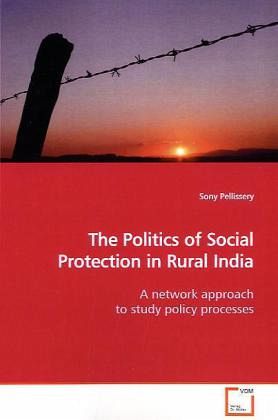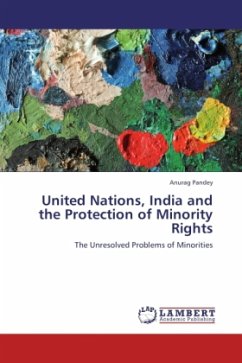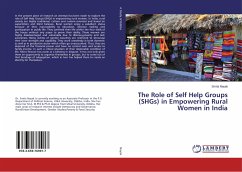
The Politics of Social Protection in Rural India
A network approach to study policy processes
Versandkostenfrei!
Versandfertig in 6-10 Tagen
52,99 €
inkl. MwSt.

PAYBACK Punkte
26 °P sammeln!
Social protection, in the context of informal economy, is a challenging task. When traditional societies transform into modern state and their economies prosper, formal social protection becomes indispensable. A new dynamics of the symbiotic existence of informal and formal social protection takes place. This generates a politics that shapes the access to social protection. Empirical examination of the promotive and protective social protection programmes (employment guarantee scheme and income maintenance programme) of rural India reveals that both eligibility and entitlement to welfare right...
Social protection, in the context of informal
economy, is a challenging task. When traditional
societies transform into modern state and their
economies prosper, formal social protection becomes
indispensable. A new dynamics of the symbiotic
existence of informal and formal social protection
takes place. This generates a politics that shapes
the access to social protection. Empirical
examination of the promotive and protective social
protection programmes (employment guarantee scheme
and income maintenance programme) of rural India
reveals that both eligibility and entitlement
to welfare rights are contested within the power
structure of the local communities. Micro-politics
within the household, social groups and communities
as well as macro-politics of the political parties
and internationalism interface each other in the
politics of social protection. This is unraveled by
examining the network of poor people in the villages
of India. The path-breaking research into the
multilayered politics of state, market, civil
society and households, through innovative
methodologies, shows how competing interests in the
society shape the public policies.
economy, is a challenging task. When traditional
societies transform into modern state and their
economies prosper, formal social protection becomes
indispensable. A new dynamics of the symbiotic
existence of informal and formal social protection
takes place. This generates a politics that shapes
the access to social protection. Empirical
examination of the promotive and protective social
protection programmes (employment guarantee scheme
and income maintenance programme) of rural India
reveals that both eligibility and entitlement
to welfare rights are contested within the power
structure of the local communities. Micro-politics
within the household, social groups and communities
as well as macro-politics of the political parties
and internationalism interface each other in the
politics of social protection. This is unraveled by
examining the network of poor people in the villages
of India. The path-breaking research into the
multilayered politics of state, market, civil
society and households, through innovative
methodologies, shows how competing interests in the
society shape the public policies.












